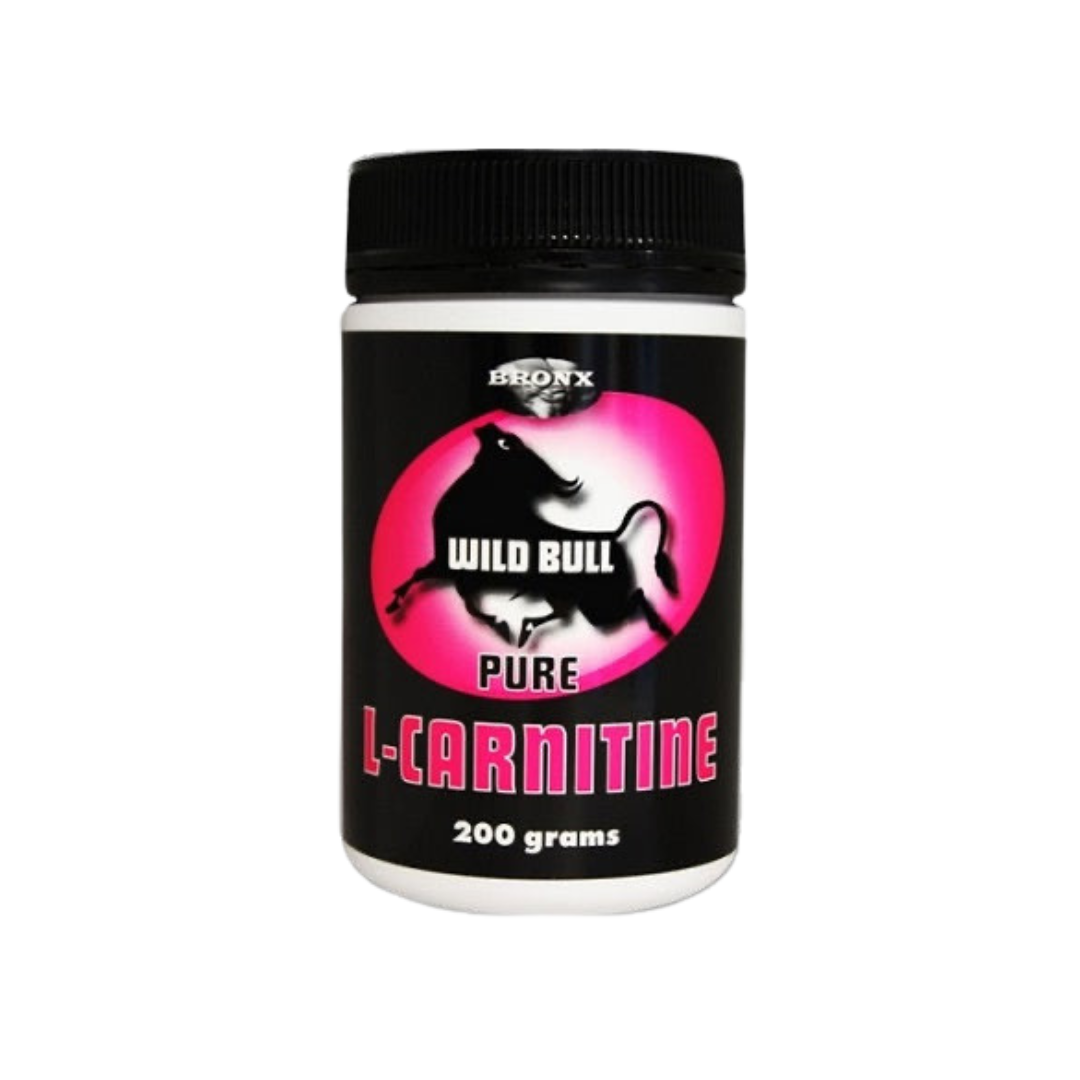Wild Bull
Wild Bull L-Carnitine - Non Stimulant Fat Metaboliser
Wild Bull L-Carnitine - Non Stimulant Fat Metaboliser
Couldn't load pickup availability
What is it? Carnitine is a naturally occurring amino acid in the body synthesised from Lysine and Methionine with some also being absorbed through diet (meats). Its purpose is to transfer fatty acids into the mitochondria of cells, where these fats can be processed for energy production. Carnitine has been promoted as an aid in the fat burning process, however most research shows that supplemental L-Carnitine increase in actual fat burning is at best minimal. Unfortunately, these studies were short term and done on previously sedentary individuals. Don’t throw out your L-Carnitine supplements yet, let us explore what it is actually good for.
Who Should take it? First cab off the rank for L-Carnitine supplementation are strict Vegans or those on a low protein diet. Most of the bodies L-carnitine is made from the food we eat and if you aren’t consuming enough raw ingredients (amino acids) then you will need to supplement.
ACETYL L-CARNITINE has also been used in diabetics to improve glucose metabolism. While there isn’t any research on this that I’m aware of, for those looking to do a clean bulk and limit the amount of fat stored, the Diabetes research would tend to suggest Acetyl-L-carnitine could be helpful during a bulking phase.
Acetyl L-Carnitine has been studied extensively in relation to improving the symptoms of Alzheimer’s as well as improve general brain function in the elderly.
What does it do? All of the Carnitine forms have been shown to alleviate the effects of aging and disease on mitochondria. The Acetyl form is used as brain booster due to its ability to increase alertness while providing support to neurons.
Research on L-carnitine supplementation with athletes on a restricted calorie diet coupled with a high work load is limited, which is unfortunate because this is the group that uses L-carnitine the most and also the situation in which a real need for extra L-carnitine exists. There is however good research to suggest that athletic performance and recovery are improved from longer term (at least 3 months) of daily L-carnitine supplementation. Anything that assists in better overall performance will lead to greater calorie expenditure and with time a loss of body-fat.
How do I take it? Standard dose of carnitine is between 1g – 3g. Per day has been shown to produce little if any side effects. Spreading the dose out throughout the day seems to cause less gastrointestinal distress (nausea).
Bottom line is that more research on dieting (contest preparation) individuals is necessary, however the overall improvements in performance and health (lower blood pressure) would suggest that L-carnitine supplementation could be beneficial for gym goers.
Share

